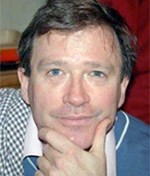
Robert J. Godfrey received a Bachelor of Applied Science degree in geological engineering from UBC in 1975 followed by a Ph.D. in geophysics in 1979 from Stanford University as a member of the Stanford Exploration Project founded by Jon Claerbout.
Following his graduation, he began his career with Mobil Field Research Lab in Dallas and then joined Digicon in London for 8 years where he worked in research and development. This was followed by a 25-year stint with Schlumberger where he worked in Calgary, Austin, London and Cairo, primarily in the fields of reservoir characterization and later in seismic monitoring. In 2015, he established Robert Godfrey Geophysics Inc., and is currently working as a geophysical consultant in seismic technology, geophysical education, and undertakes short-term field assignments. He is a member of the SEG and is a professional geoscientist in the province of Alberta.